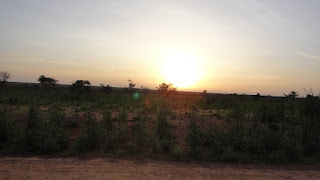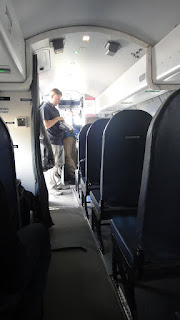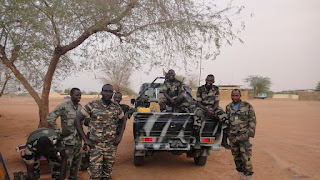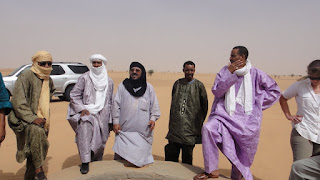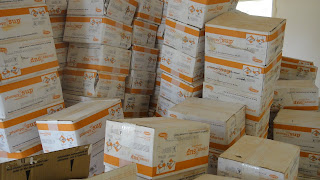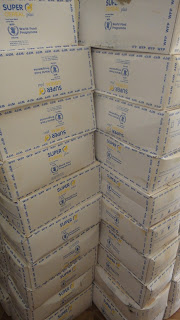The highest lifetime risk of dying in childbirth in the world is in the West Africa Country, Niger, where a girl or woman stands a 1in 7 chance of dying in childbirth.....In contrast, in the United States, the lifetime risk is 1 in 4,800...in Ireland, a woman has only 1 chance in 47,600 of dying in childbirth.
Nicolas Kristof, Half the Sky: Turning Oppression into Opportunity for Women
 |
| The Community Health Aide Training Participants |
Last week I was visiting a refresher training course supported by Samaritan's Purse for community health aides about screening for acute malnutrition, exclusive breastfeeding, complementary feeding, diarrheal diseases, and water and sanitation. It was encouraging to see the participants and their dedication, particularly the woman who walked over 10 km to attend the training.
 |
| The training venue |
The training was at a health center and while we were there we met, "Rachel" whose one-year old son, "Omar" was severely malnourished and had to be taken to the District Hospital for treatment. After we finished discussing with our field staff and the training participants, Rachel, her husband, and Omar joined us in the land cruiser for the 70 km trek back to Niamey. While in the car I read the discharge papers and quickly learned that our land cruiser wasn't serving as an ambulance just for Omar, but for Rachel as well. At the age of 25 years, she was pregnant for the fifth time and HIV positive. Her first three children had died and now her son was severely sick. As we drove through the desert sand in the intense heat, with Rachel vomiting and Omar crying in the back seat, I contemplated the differences in Rachel's life with the lives of some girls I met in Niamey earlier the same week.
 |
These girls attend a vocational school that is supported by a mission organization from Canada. The primary objective of the school is to prevent girls from marrying before age 18. In order for the girls to receive a free education, the families have to promise that they will not marry off their daughters. It is a novel concept in a country where only 31% of girls regularly attend primary school. When I first arrived the girls were chatty and active, but soon quieted down and listened to a topic that I'm pretty sure was brand new to them--self -esteem.
 |
| "Je suis belle, precious, intelligent, unique, courageuse" |
After the lesson, each girl took five different finger paints to represent different characteristics, beautiful, precious, intelligent, and unique, and placed them on tree branches.
I probably will never find out if Rachel will be one of the 7 women in Niger who die in childbirth and if Omar will recover to not be 2 of the 5 children who are malnourished. But my hope and prayer is that by continuing to build the capacity of community health aides to correctly screen for acute malnourished children and for organizations that invest in the lives of girls now, these girls and their children will not.
It is impossible to realize our goals while discriminating against half the human race. As study after study has taught us, there is no tool for development more effective then the empowerment of women.
Kofi Annan






